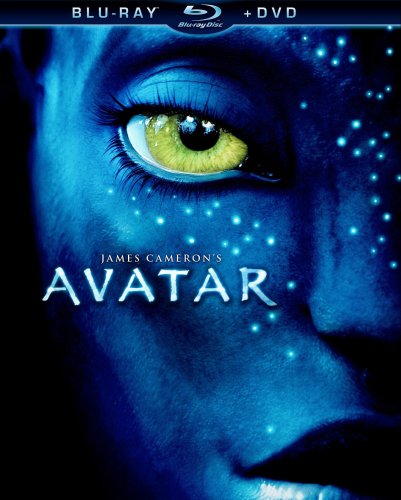Or: Why did I limit myself on topics when I created this blog?
I have a confession to make. Like Benedict Arnold, Tokyo Rose, and Jane Fonda before me, I am a traitor to my own country. I haven’t spied on anyone, I haven’t sold state secrets to anyone, nor have I taken up arms against anyone. What I have done, however, can be seen as just as bad by some in the geek culture – I’ve sided with The United Kingdom when it comes to entertainment, most notably with my science fiction tastes. For years now, I haven’t really cared about Battlestar Galactica, Star Wars, or Firefly The latter of the three even got me in a bit of trouble. So the question is: Is there a tangible difference between American and British science fiction, or have I become some sort of anglophile “weeaboo*” that pretends everything form the UK is better? In this article I hope to explain why I like what I like and show that these two types of science fiction couldn’t be more different.
*Note: “Weeaboo” is a pejorative term applied to fans of Japanese animation that apply fetishism to the country of origin and appropriate cultural references in a perverse way. Watch the SNL skit “American Jpop Funtime Now” for an example of this mentality.
When I first started this blog, I did a similar concept in an article called “Bristish Science Fiction VS American Science Fiction – Why all the Fuss”, this was sadly an article that pretty much devolved into me whining about the remake of Life on Mars and lost all momentum. I should learn that ranting right after watching something is a bad idea! I was going to simply re-write that article, but figured a new take on it would be a better idea – perhaps actually explaining my stance would be a great idea. What I did lay out then was a general thesis of why I liked stuff from the UK more – “I think the main difference can all be chalked up to the argument of mood vs spectacle with the British productions geared heavily towards atmosphere, mood, and concepts and most American-helmed productions relying mostly on spectacle, visuals, and special effects. ” As one can see here, I was really vague and applied my theory to only the visual media. If we step back a bit and look at all mediums including books, audio, and TV/film this is still salvageable. I think the main difference can be simplified to “humility vs pride”.
What could I possibly mean by this? When I originally talked about my dislike for needless “spectacle” in American science fiction I was talking about the way in which much of the media I’ve seen turns into vapid feel-good schlock with little substance. Something like James Cameron’s Avatar is a prime example of this as it has some of the best special effects, but little story to back it up. It’s one of those movies that tricks you into thinking that you’ve seen something amazing, then you realize you just saw another re-make of the tired John Smith meets Pocahontas storyline, just with blue cat-people. It truly is the story of the noble savage for a modern generation.
Publicity photo of William Shatner as Captain Kirk from the television program Star Trek. (Photo credit: Wikipedia)
These age-old nationalist themes run deep in most American science fiction productions. If you look at a show like Star Trek and boil it down to it’s essence, The travels of the Starship Enterprise can seem almost exactly like that of a frontiersman venturing into the American wilderness. Gene Roddenberry even famously said that his past experience on the show Wagon Train essentially meant that Star Trek was “Wagon Train in space.” So Star Trek is based on American Expansionism, surely not all American Science Fiction is based on that? Well,no. But most stories are about some sort of space adventuring, space colonization, and optimistic futurist fluff. I think this all goes back to World War II, and America’s status as the world’s premier mega-power from then on. American exceptionalism has tainted us with a false sense that “everything is okay, because we live in America” at all times, and to me that really isn’t true.
On a sharp contrast, The United Kingdom was faced with decades of hardship after the war, even long after the scars of the Blitz healed. Their empire crumbled, and the economy slowed to a crawl not too long after. Internal strife, terrorism, and even labor unrest lead to many calling the once mighty nation the “sick man of Europe“. America had it’s problems, most notably with civil rights, but while most American suburbanites pretended to live in the realm of the fictionalized Leave it to Beaver TV show, many in England were miserable. This lead to a creative path of social commentary in most British science fiction. The book British Science Fiction Television: A Hitchhiker’s Guide by John R. Cook and Peter Wright lays this theory out pretty well:
“British [science fiction] TV was different. While America was assured of its leadership role in the emerging space race and could look with confidence to the stars as an extension of the utopian frontier possibilities of the American Dream, Britain was having to cope anxiously in the same period with the loss of empire and general decline as a world power. Thus the notion of the British in space was not only a depressing impossibility but an outright absurdity. Some of the basic differences in character between British and US science fiction TV may be traceable to this: where archetypal US series like Star Trek often confronted the future with a sense of gung-ho optimism. British equivalents were more prone to view it with pessimism, anxiety or, especially later with such shows as The Hitchhiker’s Guide to the Galaxy (BBC TV, 1981) and Red Dwarf (BBC TV, 1988-99), an alternative response of absurdist humour [...]”
The above quote really struck a chord with me, and got me thinking about shows like Quatermass. When you first meet the titular character Bernard Quatermass, he is thrilled to have sent the first human, even better a human from Britain, into space. In a classic fashion, It all goes downhill from there and every subsequent series shows that he is slowly becoming disillusioned with the government, world space programs, the dangers of science, and finally life itself. That’s heavy stuff for a space adventure, in America Bruce Willis just rides in and saves the day. Even the “safest” UK science fiction, material geared towards families, follows this mindset. While quite a few episodes of Doctor Who can be seen as family friendly fun, there is a hidden darkness in there as well. iconic alien races such as the Cybermen are a commentary on cosmetic surgery and how long you can alter yourself and still be a human. Daleks are fascists in space, and episodes like The Green Death are taking a jab at industrial eco-hazards. Doctor Who has even tackled subjects such as religion and homosexuality, a huge “no-no” over here.
This tendency towards social commentary and pessimism isn’t without it’s critics. In the 1960’s the BBC produced a drama called The War Game that depicted the aftermath of a nuclear strike on the UK. As I pointed out in my review, establishment types were not happy: “The War Game didn’t actually get shown on any TV network until the mid-1980’s, and I’m thankful it didn’t meet the same fate as other 1960’s BBC productions –wiped and junked. It was deemed too dark, it made the British infrastructure look bad, it belittled civil servants, and it stood in the face of over-zealous national pride –things that weren’t cool forty years ago. At least now we can watch it, and enjoy it without any censorship involved.” A lot of fans don’t like this either and label British science fiction as too dark or depressing. For me this is a case of “to each their own, as I’d rather have emotional attachment to something in a show than just watch eye candy all day.
So there we have it, American science fiction is far too optimistic for my taste and does little to talk about social commentary. Instead, much of it tries to further idealistic post-war American values that many Americans no longer value – such as new imperialism. American productions seem whitewashed and fake in this climate, while UK productions still have teeth, even to this day. Not everything has to be bleak – being witty, satirical, or even mocking is fine as long as the subject has substance. I just want something more than “YES WE CAN!” because I’m too cynical for that garbage. Maybe Bruce Willis Won’t save the day, Aerosmith won’t play a cool song, and maybe the rock hits the Earth, let’s make the most out of it! Lately there has been an uprising of US based shows with a UK slant directly coinciding with the rough times we are having as of late, so there is hope that they are trending to a common end. Not everyone is happy about this though, as I leave you with a quote from a Time Magazine article that pines for the long-gone days of “happy science fiction”:
“There was a stretch of time — from the early 20th century through the beginning of comic books — when science fiction was an exercise in optimism and what is these days referred to as a “can-do” attitude. There appeared to be no problem that couldn’t be dealt with either by the one-two punch of positive thinking and, well, punching— or by intellect and inspiration: new inventions were dreamed up that automated everyday tasks and made the impossible not only possible but also commonplace.”
This view annoys me to death.
Related articles
- Science Fiction, Aliens, and Suspension of Disbelief (jtdavidson.wordpress.com)
- Monday Musings – Nanotechnology (petertcormack.wordpress.com)
- The Moment When Science Fiction Split off From Competence Porn (io9.com)
- Sci-fi paintings by Simon Stålenhag (filter-gauge.com)
- Name your own price for six science fiction and fantasy e-books (reviews.cnet.com)
- 45 Women of Color in Science-Fiction/Fantasy Movies (racialicious.com)
- Othering in Sci-Fi and Life Imitating Art (authorakanderson.wordpress.com)
- Female Sci-fi Authors v. Myths About Girls, Math and Science (authorakanderson.wordpress.com)
- 9 Scientific Breakthroughs That Killed Science Fiction Subgenres (io9.com)
- Umairh says… Its not Sci-Fi (cubicgarden.com)
Filed under: Uncategorized Tagged: Avatar, BBC, Benedict Arnold, Gene Roddenberry, Hitchhiker's Guide to the Galaxy, James Cameron, James T. Kirk, Jane Fonda, science fiction, Star Trek, Star Trek: Next Generation, Star Trek: The Next Generation, Star Wars, Starship Enterprise, startrek, United State, United States



